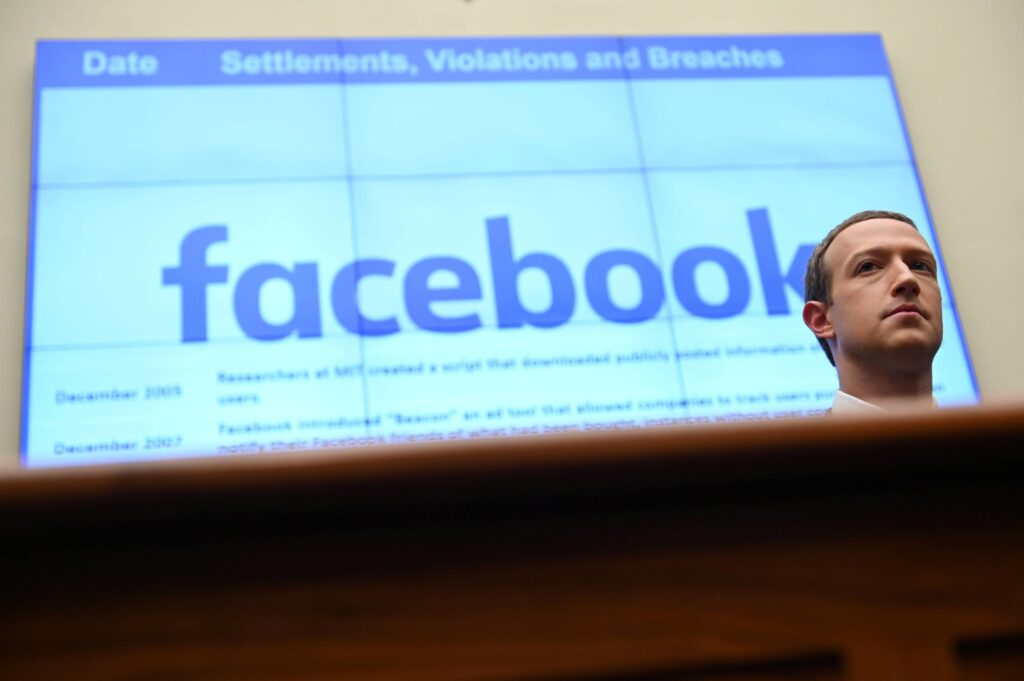
Corporate social responsibility (CSR) refers to a firm’s coordinated action to perform operations that promotes beneficial behavioral dispositions concerning society, ecology, and the highest standards of ethics. To deepen our understanding, this article will investigate a business of Facebook that has faced widespread scrutiny from various stakeholders regarding the repeat offender of the privacy breach. We will determine who was engaged in the criticism, the exact issues, and how the company responded.
The Problem
Internal papers provided by Facebook leaker Frances Haugen, who appeared before the US Senate on October 5, reveal that in 2017, Facebook was experiencing a fall in engagement that jeopardized its income stream and market domination (Maher, 2021). Facebook tried to prevent it by adjusting the algorithm management that governs the News Feed of its two billion users, favoring user behaviors like reshares and responses over information from close family and friends (Maher, 2021). In the end, Mark Zuckerberg made this choice. Scott Simms, a former Liberal MP for a northern Newfoundland district who lost his seat in the September 2021 Canadian election, thinks that the 2018 Facebook algorithm change exacerbated the hostility he saw when door-to-door canvassing (Maher, 2021).
Internal papers made public by Haugen demonstrate that involvement did rise after the network made a move, enhancing downstream but at the expense of society (Maher, 2021). The records reveal that the business received complaints from media organizations and political parties who claimed the algorithm was reinforcing unpleasant articles that elicited a passionate reaction from users by favoring high-engagement material (Shackelford, 2021). According to the records, these responses sparked complaints about worsening political unrest in Poland, Spain, Taiwan, and India (Maher, 2021). It supports Simms’ theory that people are less tolerant of opposing perspectives due to Facebook’s algorithm change in 2018, which was meant to encourage interaction.
Who was Engaged?
During the court process, the criticism engaged the law enforcers and some testimonials providers such as Frances Haugen, Scott Simms, some political parties, US Congress, etc (Shackelford, 2021). However, it also actually involves every user of Facebook worldwide. It creates an insecure feeling whenever we share our stuff on the Facebook platform. As Fernando (2022) emphasized, to ensure a company implements the most efficient and effective CSR approach, it must always involve the perspective and desire of the stakeholders. It is not limited to the users, government, customers, and shareholders.
Company’s Response
The first noticeable response resulted in their realization of the apparent fact that internet security was possibly in jeopardy; Mark Zuckerberg did not go into the offensive mode; instead, he admitted the need to increase safety. According to Zuckerberg’s pledge, the General Data Protection Regulation of the European Union will be applied to all users worldwide (Shackelford, 2021; Isaac, 2019). Additionally, it will be necessary for political advertisements to offer more openness as a new tool in the alleged armed conflict Facebook is engaged in with Russian ideologues; also, the business is working with scholars to help comprehend how it affects campaigns (Shackelford, 2021).
In response to these criticisms, Facebook began to alter its conduct in preventative and preventive ways. In 2018, Facebook ended purchase talks with Houseparty, a multimedia networking site in Silicon Valley, out of worry over raising antitrust issues (Isaac, 2019). Facebook has also started making internal adjustments that make it more challenging to disband. The corporation has been fusing the social platform of Facebook Messenger, Instagram, and WhatsApp and reorganizing the divisions so that Facebook is more obviously in command (Isaac, 2019). Also, management has sought to rename WhatsApp and Instagram to link them to Facebook more strongly.
Facebook also started a rebranding process last year and solicited assistance from at least one outside agency. According to the company, Prophet Brand Strategy, the task was to turn Facebook into a “branded home” where the names WhatsApp and Instagram always come first (Isaac, 2019, para. 22). They said that Mr. Zuckerberg and Facebook’s top marketing officer, Antonio Lucio, were responsible for the rebranding directive. The business unveiled a composite measure in June 2018 that deflected focus away from any one product (Isaac, 2019). It recorded the total number of users across all Facebook platforms, including WhatsApp and Instagram. In their efforts to rebrand, as we all witnessed, Facebook reintroduced itself with more advanced features and a different name – Metaverse.
Conclusion
Facebook proves that it is possible to change the direction of criticism or scrutiny as the opportunity to thrive. Until this moment, many people around the world still use it. Moreover, as one of those users, my confidence level using the platform increased because all the leading media on my phone connected through Meta. Which always alerts all devices whenever there is a new sign-in in another device or country. A firm must first be accountable to its shareholders before being socially responsible (Fernando, 2022). I believe Facebook implements CSR initiatives frequently and expands to the point where it can support the community. Simultaneously, the company needs to provide an example of moral conduct for its associates, rivals, and industry to be more recognizable and profitable.
Word Counts: 853 words
References
Fernando, J. (2021, September 4). Corporate Social Responsibility (CSR). Investopedia. https://www.investopedia.com/terms/c/corp-social-responsibility.asp
Isaac, M. (2019, August 12). How facebook is changing to deal with scrutiny of its power. The New York Times.https://www.nytimes.com/2019/08/12/technology/facebook-antitrust.html Learning Guide 2. (n.d.). Introduction: Corporate social responsibility. University of The People. https://my.uopeople.edu/mod/book/view.php?id=296369&chapterid=344243
Maher, S. (2021, October 8). Facebook’s algorithm comes under scrutiny. Centre for International Governance Innovation. Retrieved June 30, 2022, from https://www.cigionline.org/articles/facebooks-algorithm-comes-under-scrutiny/
Shackelford, S. (2021, December 22). Facebook’s Social Responsibility should include privacy protection. The Conversation. https://theconversation.com/facebooks-social-responsibility-should-include-privacy-protection-94549






